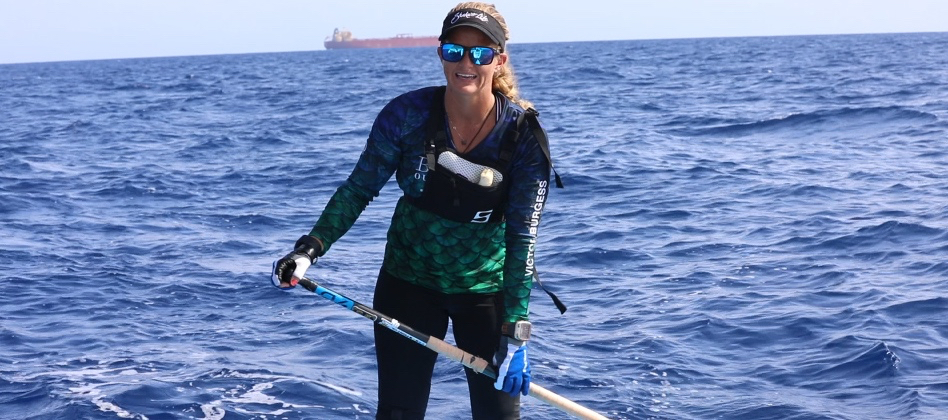MIAMI—University of Miami (UM) Rosenstiel School of Marine and Atmospheric Science Professor Villy Kourafalou provided detailed forecast maps of ocean currents to Victoria Burgess, the first woman to cross the Straits of Florida from Havana, Cuba to Key West, Florida, on a stand-up paddleboard.
Burgess, a South Florida native, made history on June 29 during the 28-hour journey, which could land her in the Guinness World Records.
Prior to her departure from Cuba, Burgess and her crew contacted Villy Kourafalou, professor of ocean sciences and lead investigator in the Coastal Modeling Lab at the UM Rosenstiel School for key information about the type of ocean conditions Burgess might encounter while crossing the Straits of Florida.
"Oceanic current conditions were quite favorable, without strong eddies that circulate waters around which could push her away from the planned track,” said Kourafalou. “Even so, she encountered—and managed to cut across—a vast area of some of the world's strongest ocean flows, an amazing feat".
Burgess had to cross the mighty Florida Current, the branch of the Gulf Stream within the Straits of Florida. Knowing the position of the strongest currents was vital for her success. Aside from strong currents and big waves, Burgess faced threats from sharks, deadly jellyfish and turbulent weather. Burgess, a Pompano Beach Fire Inspector, said the goal of the “Chica Libre” (“Free Woman”) paddle crossing was to encourage women everywhere to follow their dreams. She hopes this attempt will break the Guinness World Record for the longest journey by stand-up paddleboard.

